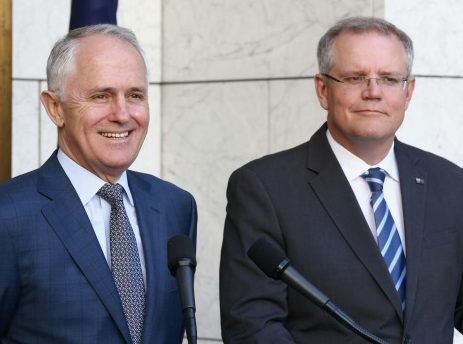
Hold onto your wallets - it's the 2016 Budget & Election season!
 Our world is going to become increasingly dominated, thanks to the impending federal Budget and election, by matters of retirement incomes and investments and how they affect older Australians.
Our world is going to become increasingly dominated, thanks to the impending federal Budget and election, by matters of retirement incomes and investments and how they affect older Australians.
The sums involved, both in spending and saving, and the demographic bubble which is the baby boomer generation (1945-1964) means change is inevitable and will produce winners and losers.
The Budget on May 3 and the election on July 2 will see superannuation concessions and tax breaks like negative gearing as targets for ‘reform’.
These changes to a greater or lesser extent can impact all age groups however it’s arguable anything to do with super and much of the use of negative gearing would tend to be relevant to those both older and better-off.
The confusion caused by the government’s on again/off again pronouncements around changes to the GST, negative gearing and even state’s income-tax powers have not helped their ratings.
So far as we know how might these changes impact on those both richer and poorer aged more than 50 and is there anything we can do about it?
The Budget
While the Treasurer Scott Morrison has said the Budget will focus on spending cuts and not tax increases there’s potential for tax concession reductions especially around super.
The figures may seem fiddly but in essence the ability for the better-off to put larger sums away in the tax shelter provided by super are set to be whittled down.
The target will be on those under 60 in the so-called 'accumulation phase', that’s to say before you start withdrawing your super, and the advice from reliable financial planners is, if you can, to make top up contributions sooner rather than later.
And if front page reports in Wednesday's Sydney Morning Herald are to be believed the Liberals intend to tighten up on higher-income superannuation concessions even more than Labor had planned.
The already-controversial Shorten plan was to reduce the threshold for taxing contributions more heavily from $300,000 to $250,000. Now it seems Treasurer Morrison intends to announce on Budget night it will fall to $180,000.
While this will net an extra $2 billion annually, instead of Labor's now seemingly modest $500 million according to the Herald, another quarter of a million Australians will find their super contributions taxed more heavily.
The election
The government pushed negative gearing ‘off the table’ earlier in the year but it looms large in the federal poll with various predictions about the possible effects on house prices and rent increases.
Labour has nailed its flag to the mast of cigarettes with sharp increases to tobacco excise to help fund promises around health, education and spending on job creation.
More controversial are proposed changes to superannuation and capital gains tax concessions and a wide-scale scrapping of negative gearing -- a policy which allows investors to write-off costs associated with their investment against tax.
The plan, if elected, is to scrap negative gearing for existing properties made after July 1, 2017 and maintain the practice only for new homes.
Any properties bought before that date would be ‘grandfathered’ which means they could continue to be negatively geared.
Likewise Labor says it will cut from 50% to 25% the capital gains discount for assets held longer than 12 months from the same date.
What next?
More details about the budget, in the form of leaks before the big night, and the election in terms of policy announcements, will be coming thick and fast.
We’ll aim to keep you posted on how your interests might be affected and we'll stand up for those over-50 where there’s a common interest.
In the meantime, take a minute to fill in the poll on your FiftyUp Club dashboard and let us know what MOST worries you about the 2016 Budget and Election.
FiftyUp Club Pty Ltd (ACN 166 905 175) is a Corporate Authorised Representative (AR number 465649) of One Big Switch Pty Ltd (ACN 150 963 474) who holds its own Australian Financial Services License (AFSL 455982) and can provide you with factual information and general advice only. If in doubt about your personal situation or needs you should seek personal financial advice.


